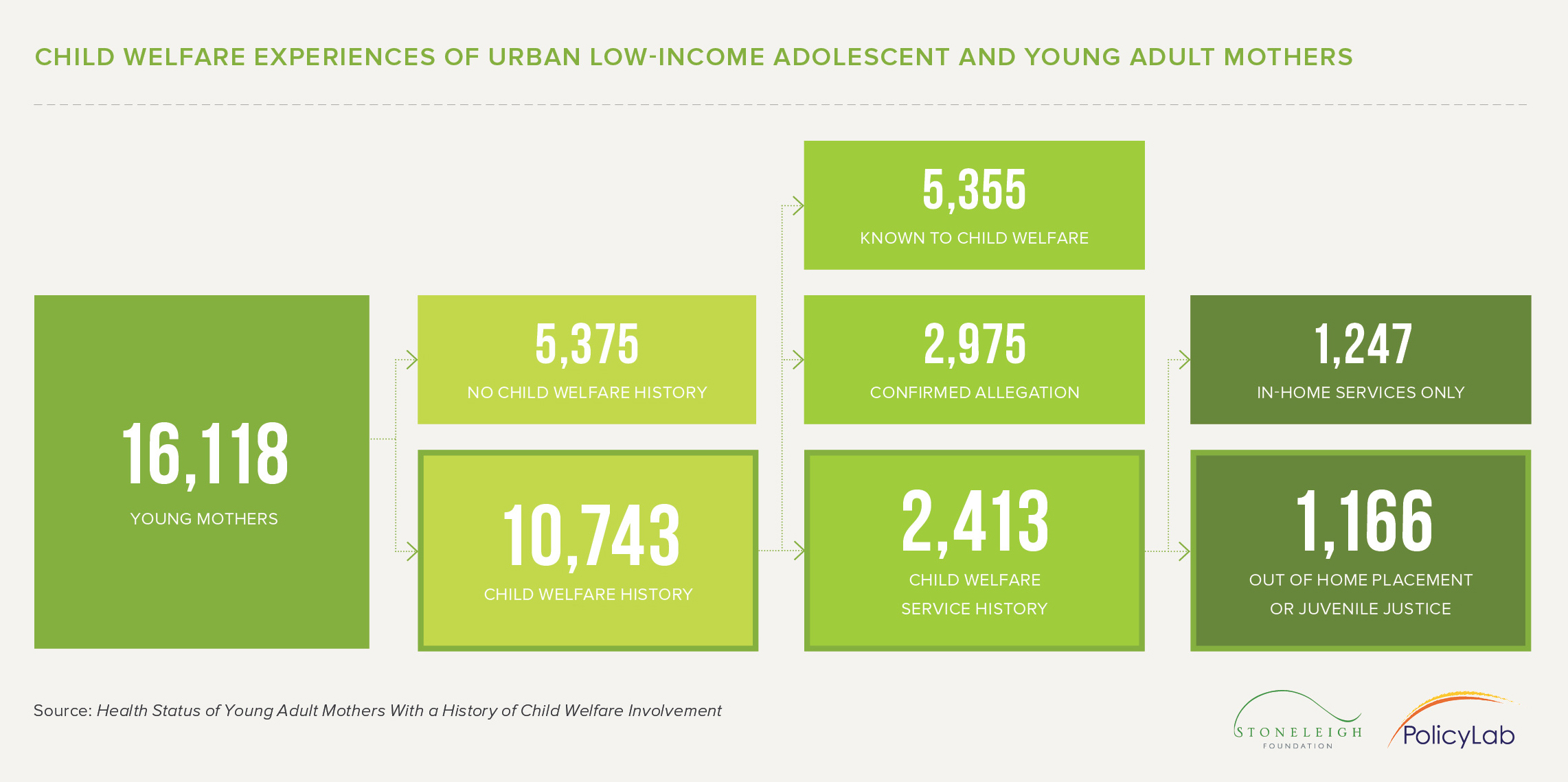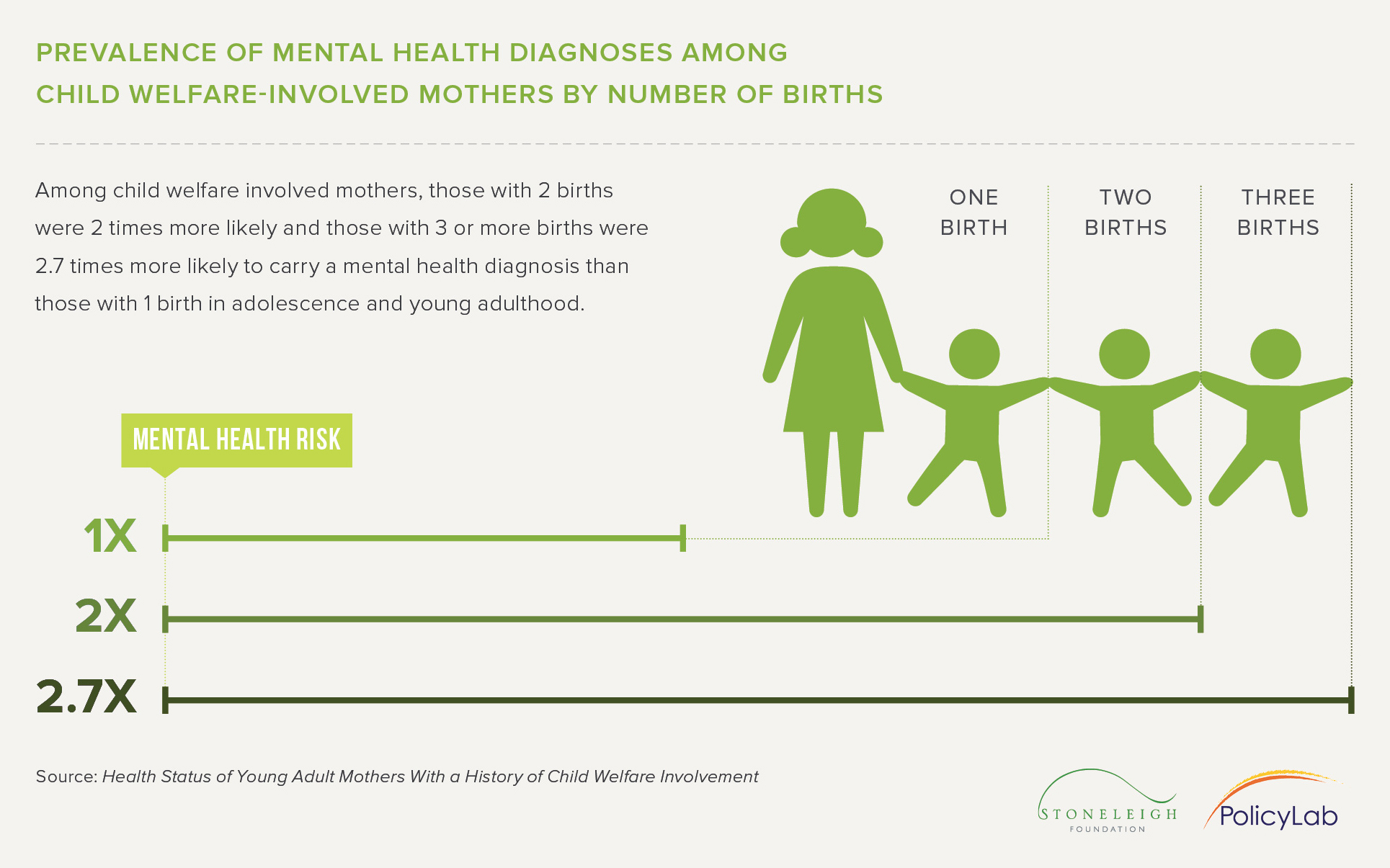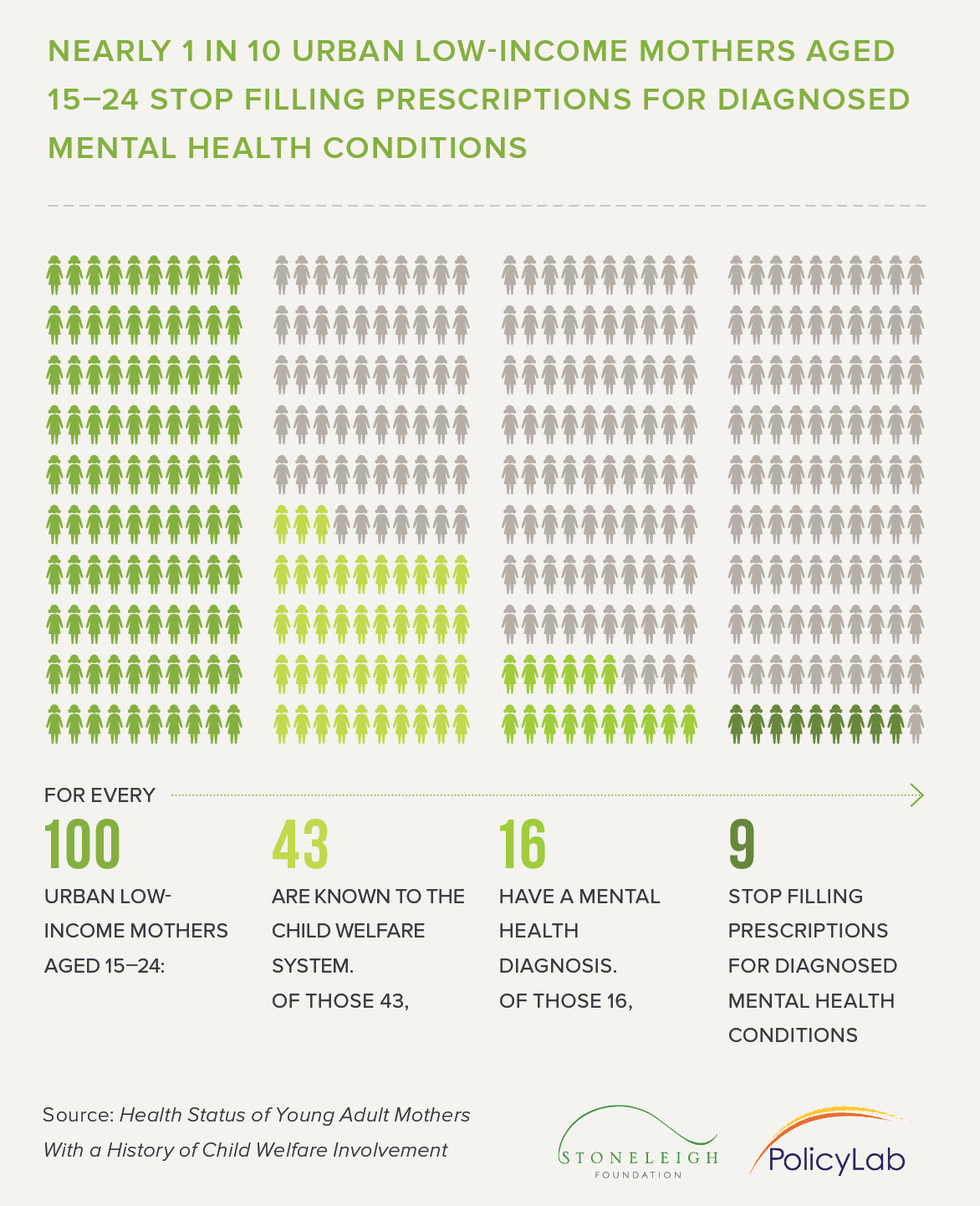HOW CAN WE HELP YOU? Call 1-800-TRY-CHOP
In This Section
Do Teen Mothers in Vulnerable Populations Need Better Health Services?

The findings:
Young mothers emerging from the child welfare system need better health services. Data shows that adolescent and young adult mothers with a history in the system experience a high number of physical and mental health conditions prior to the birth of their baby. In the postpartum years, many of these mothers often stop treatment for their health conditions and become vulnerable to poor self-care.

Why It matters:
The transition to motherhood is a critical and delicate time in a mother’s life for both her and her baby’s health. If a mother lacks the proper health services she might require during that transition — whether it is a prescription for a chronic condition or behavioral counseling — her child may be at a higher risk for adverse health outcomes, as well. This sets into motion a cycle of negative health and wellness outcomes, particularly when adolescent childbearing is associated with a higher risk for adverse birth outcomes and negative parenting tactics in general.

Who conducted the study:
Meredith Matone, DrPH, MHS, deputy director of PolicyLab at Children’s Hospital of Philadelphia; William Quarshie, biostatistician at PolicyLab; David Rubin, MD, director of PolicyLab; and Cynthia Minkovitz, MD, chair of the department of Population, Family, and Reproductive Health at Johns Hopkins Bloomberg School of Public Health.
How they did it:
The researchers looked into the physical and behavioral health status of young mothers with a history of involvement in the child welfare system. They combed through the health records of 16,000 mother-and-baby pairs in a large Middle Atlantic city for a time period spanning 12 months before the baby’s birth, and 12 months after. These health records included medical assistance claims files for chronic physical health conditions (like inflammatory or metabolic concerns) and behavioral health conditions (like substance abuse and mood disorders), as well as prescription claim files that indicate how regularly mothers filled these prescriptions. 
What’s next:
According to the researchers, the next step is to explore whether improving maternal health care services will lower rates of infant and early childhood maltreatment, as well as working out policies that will give young families a healthier, safer life.
Where the study was published:
Children and Youth Services Review.
Who helped fund the study:
The Stoneleigh Foundation (Fellowship) and the Doris Duke Fellowships for the Promotion of Child Well-Being supported this study.
Where to learn more about the study:
Read more on PolicyLab.


